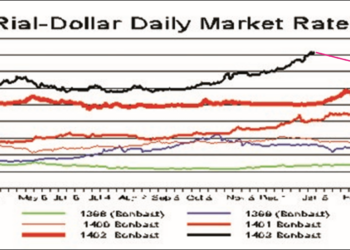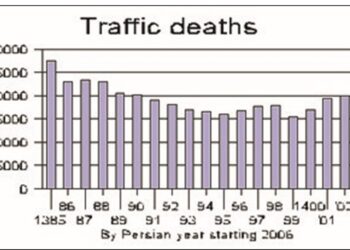of Iran Shipping Lines (IRISL) for violating American financial laws.
It was the first time the US government had accused any sanctioned Iranian firm of criminal activity and marked an escalation in the US effort to make it ever harder for Iran to conduct business.
The indictments were issued against five Iranian nationals, IRISL and 10 companies charged with acting as fronts for IRISL.
None of the five people charged are believed to be in the United States. Prosecutors said they were trying to have them extradited from Britain, Singapore and the UAE, but weren’t sure they could do so.
The significance of the case isn’t likely to be in any prosecution but in the ever larger cloud hanging over IRISL and making it harder and more costly for the firm to operate.
The criminal charges were filed by Manhattan District Attorney Cyrus R. Vance Jr., the son of the man who served as President Jimmy Carter’s secretary of state until he resigned because he opposed the effort to launch the hostage rescue mission into Iran.
The heart of the case against IRISL is that it created aliases to hide who it was in order to con New York-based banks into processing $60 million in payments that IRISL is barred from processing through the United States. The banks have not been charged with any crime. In effect, they are viewed as the victim of IRISL’s con job.
Vance told reporters, “IRISL and others have used alter egos to mask their misuse of the New York banking system. Nothing brings clarity, in terms of dealing with sanctions, like the fact of a criminal indictment. Entities outside the United States need to understand that the American government and the state government [of New York] will take this seriously.”
IRISL’s problem is that the shipping industry conducts its business routinely in dollars. That means shipping firms need access to American banks at some point. But IRISL has been under sanctions since 2008 and is thus barred from accessing US banks.
IRISL was sanctioned by the United States for providing services to Iran’s ballistic missile program. It has also been cited by the United Nations for carrying exports of Iranian arms. UN sanctions forbid the export of Iranian-made arms.
The five Iranian citizens have been charged with falsifying business records, which carries a maximum of five years in prison. The 11 companies could face fines if convicted.
Ever since IRISL was first sanctioned, the United States has been playing a game of Whack-a-mole with it. IRISL constantly creates new front companies to own its ships or operate them; it reflags the ships in other countries and changes the ships’ names. Every few weeks, the US Treasury issues a new sanctions list sanctioning the same ships and firms under their new names.
IRISL and its subsidiaries have also been sanctioned by the European Union.













